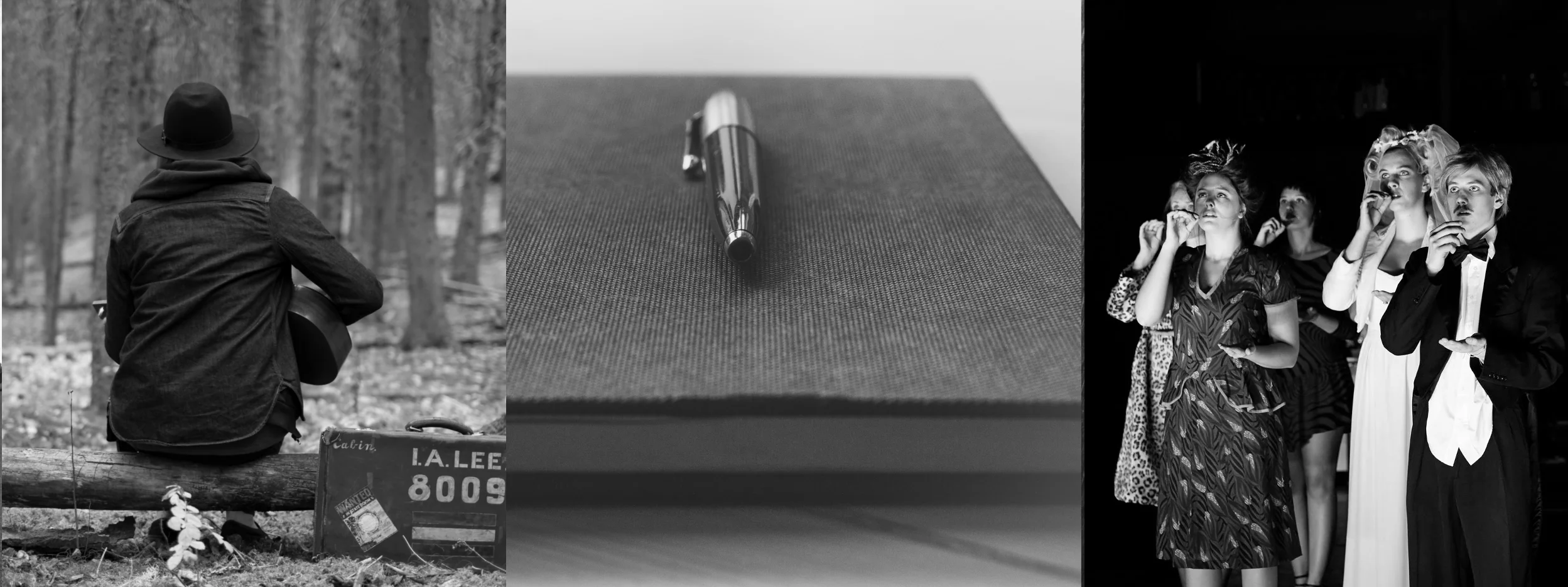Who Has Received Our Support So Far?
The overarching aim of the Ann Maguire Arts Education Fund (AMAEF) is to provide environments where the youth of today can achieve more rewarding and fulfilling lives and we believe that arts education is one possible way of achieving this.
The AMAEF awards funding to both community based groups and highly driven and talented individuals whose families find themselves in financial difficulty.
The community projects are aimed at those with little exposure or contact with the arts. As an arts education fund, we wish to give young people the opportunity to experience the arts and crucially, to enable them to discover their own artistic potential. We fund community groups who offer the creative mediums of dance, drama, or music.
Through funded projects we have enabled hundreds of school children in West Yorkshire to take part in creative projects and we hope to continue to introduce many more young people to the arts and help them to find their creative voice.
Grants awarded to community based projects were for both singular and rolling projects that required up to £1500 funding.
The fund has now awarded over to £90,000 since it started to groups and individuals in memory of a very special lady .
Some Community Projects Supported by the AMAEF
East Street Arts
Yorkshire Dance Centre
St. Marys Youth Theatre
Heads Together Productions
And Also
SNAP (Leeds Special Needs and Parent Support Group)
Diocese of Leeds (Choral Music)
Youth Theatres Leeds
Interact Church and Community Partnership
Theatre Company Blah Blah Blah
St Mary,s Youth Theatre
Diocese of Leeds
Phoenix Dance Theatre
HB's Mama Dread's Masqueraders
Yorkshire Association for Music and Special Educational Needs
Lofthouse 2000 Brass Band
Lifeforce Productions
An In-Depth Look At Some Projects
Yorkshire Dance
One of our first group grants was awarded to Yorkshire Dance youth company so that it’s students had the opportunity to take part in the Arts Award. The Arts Award is a nationally-recognised accreditation managed by Trinity College London in association with Arts Council England and is a series of personal learning-based programmes which develop both arts-related and transferable skills such as creativity, communication, learning and teamwork.
St Mary's Youth Theatre
The performing skills taught will help to encourage confidence, a sense of fun and develop an understanding that everyone has a contribution to make and the sum of those contributions can make up a piece of theatre!
Our aim is to get the children away from issues in the area concerning anti-social behaviour, bullying and drug/alcohol abuse, giving the young people a safe environment to meet and make new friends and acquiring self-confidence and a sense of belonging whilst also learning new skills in Singing, Drama and Dance. All these skills will stay with these young people for life and benefit their future work and studies.
West Yorshire Playhouse -Young Players 2017
Following six weeks working in schools with teachers and their pupils, Primary Players culminated in 150 young people from 3 primary schools in different areas of Leeds performing Romeo and Juliet on West Yorkshire’s Playhouse’s biggest auditorium, the 750 seat Quarry Following six weeks working in schools with teachers and their pupils, Primary Players culminated in 150 young people from 3 primary schools in different areas of Leeds performing Romeo and Juliet on West Yorkshire’s Playhouse’s biggest auditorium, the 750 seat Quarry Theatre, on Wednesday 5th July.
For the last four years, Primary Players has encouraged children, no matter their ability or experience, to tackle Shakespeare and the stage with confidence and enthusiasm. The lasting memory for those sat in the audience on 5th July was of the power of the children’s voices as they totally owned the performance.
“All of the pupils are having withdrawal symptoms in class since the performance, and ask repeatedly when they can do it again! I so wish we could!” (Year 5 teacher)
Children who before the project found talking hard, especially those for whom English is not their first language or who have Special Educational Needs, really came out of their shells, and teachers report that they are now taking part in class much more. One girl aged 9, whose English is limited, learned two lines independently and delivered them on the night with volume, gusto and enormous pride.
“This is one of the two best times I’ve ever had at school” (Year 6 pupil)








